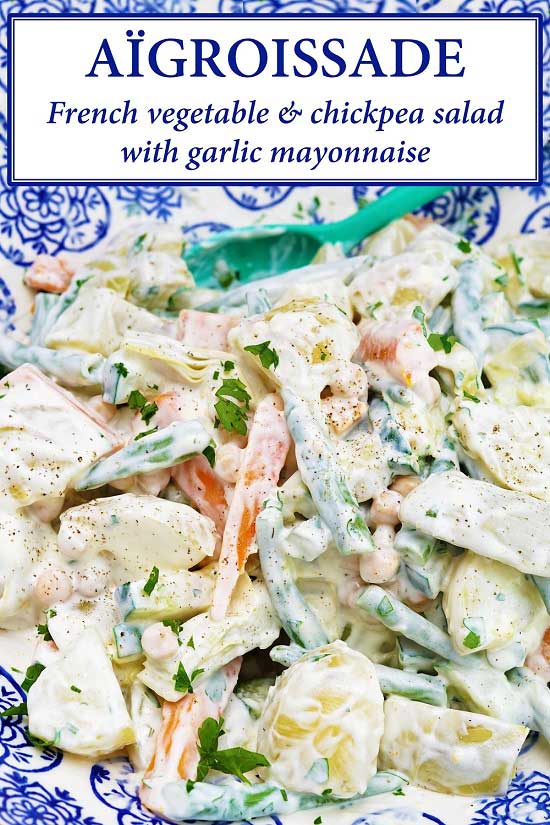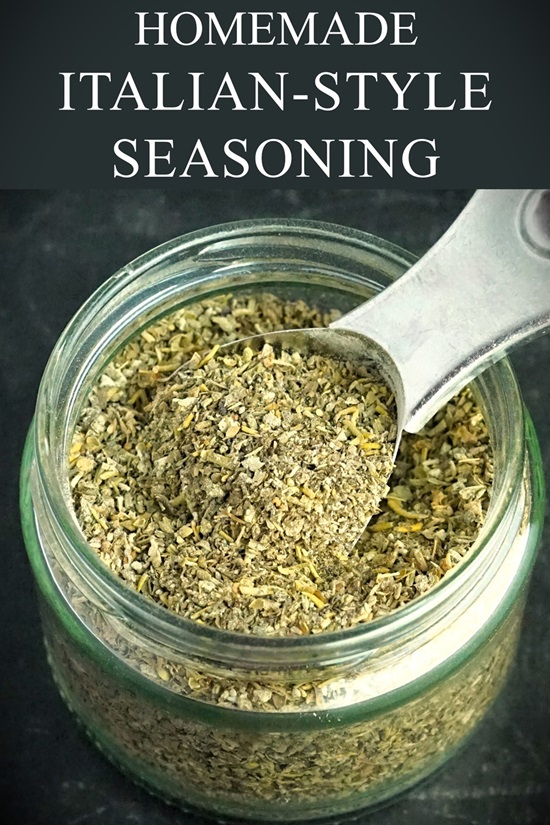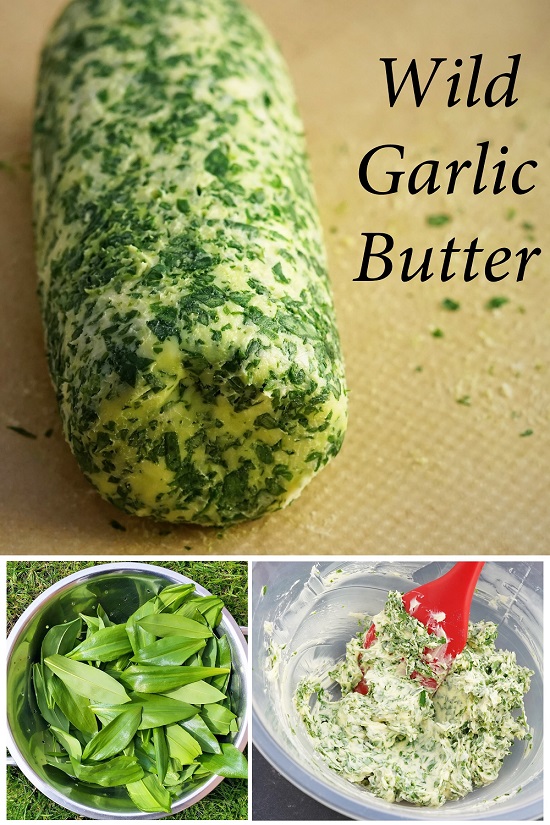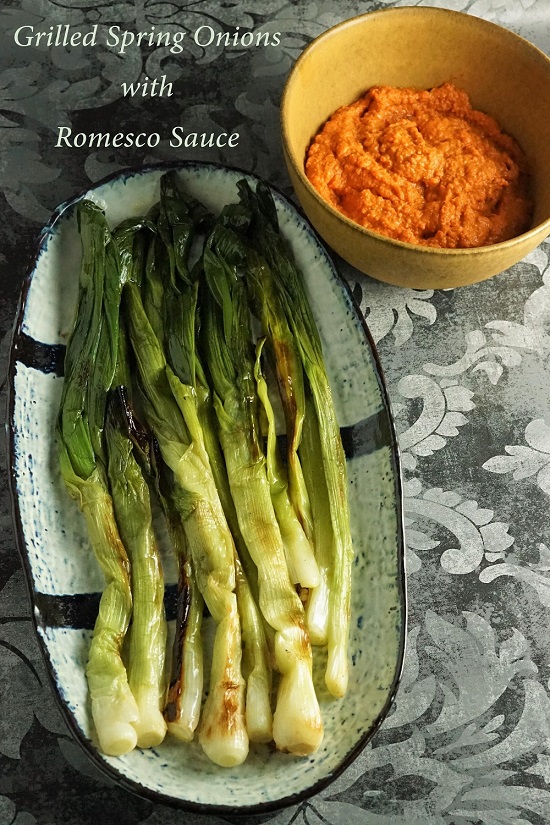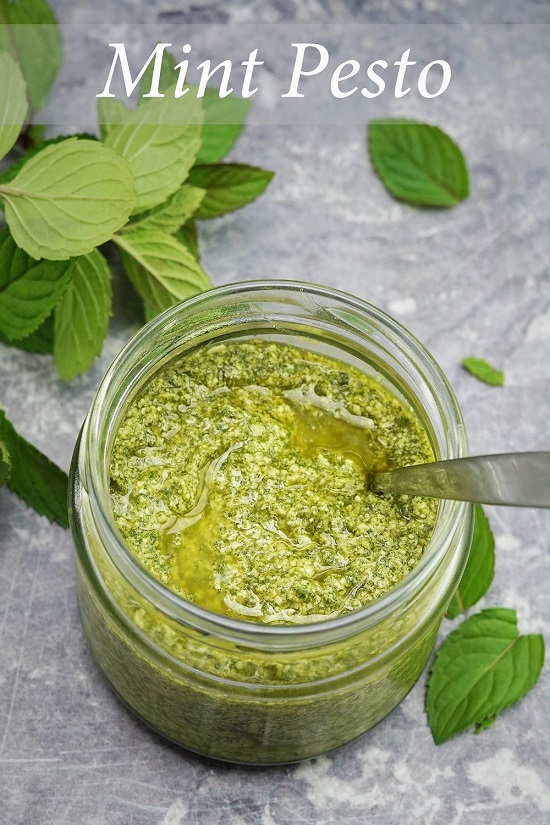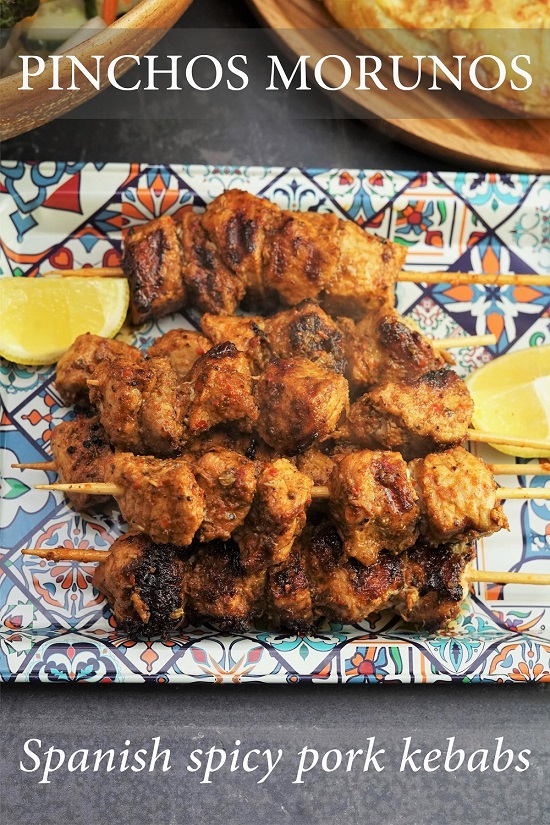Cheat’s Saffron Aioli (Garlic Mayonnaise)
Cheat’s Saffron Aioli, mayonnaise flavoured with garlic and saffron, is a superfast way to add flavour and richness to all kinds of foods. Vegetables, meat, seafood, potatoes, and rice dishes. Starting with jarred mayonnaise, you need just five to ten minutes to transform it into something truly wonderful with a few simple ingredients plus a pinch of saffron.
Don’t like saffron? Leave it out to make a punchy garlic mayonnaise you can use in exactly the same way.
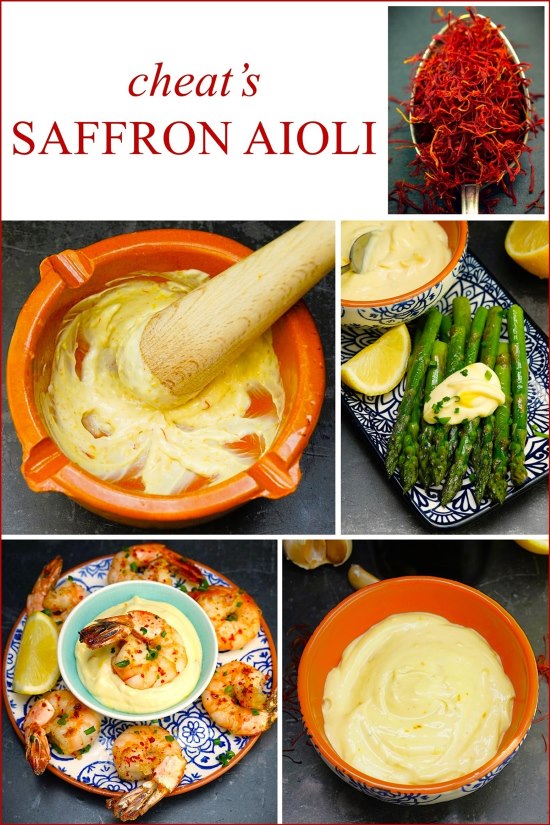
Jump to Recipe
WHAT IS AIOLI?
I’ve used the French word aioli, for this simple recipe as it’s probably what most people call garlic mayonnaise. But, as a fan of Spanish food, I also think of it as Spanish alioli and especially the version with saffron. Spain was once the world’s biggest producer of saffron and it’s used in dishes such as paella and arroz abanda. But either way, aioli or alioli, I think whoever said that punchy aioli is to mayonnaise ‘what a lion is to a pet cat’ was dead right.
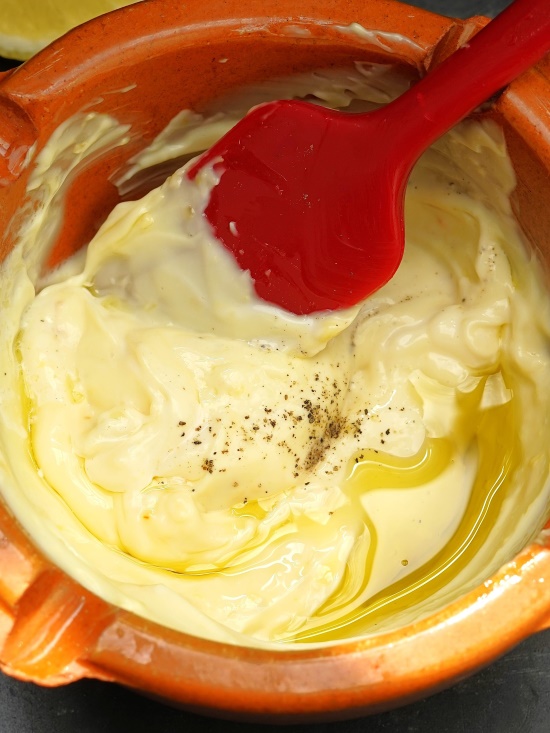
So versatile, you can eat aioli with almost anything to give a touch of rich flavour, silkiness, and garlicky bite. Vegetables, meat, fish, shellfish, potatoes, rice, or other grains.
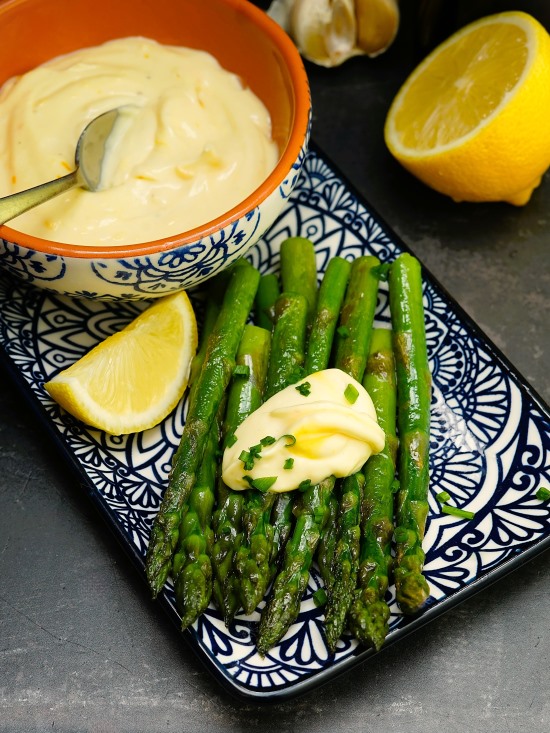
One memorable example I still recall from Barcelona over 25 years ago is arroz negro. A dish of rice, black with squid ink and with little pieces of white squid dotted through it, came with a pot of alioli containing so much garlic it tasted positively hot. Thinking back, I bet a touch of saffron in that alioli would have made the meal even better.
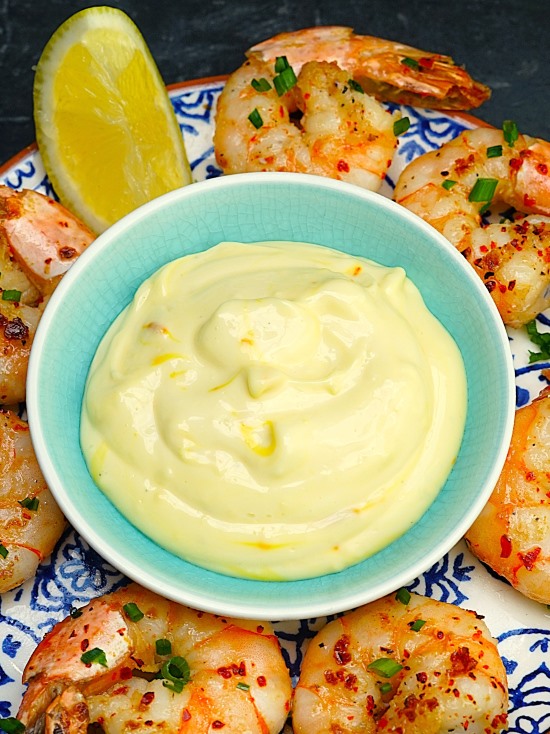
These days, aioli is almost always egg based. But the French (except Provençal) and Spanish originals were just pounded garlic and olive oil. In fact, the name in both languages combines the words for garlic and oil. In books about Spanish food, I’ve also noticed they refer to alioli con huevo (i.e. ‘with egg’), indicating eggs aren’t a given.
However, egg yolks (sometimes whole eggs) are now routinely added as an emulsifier to help bring the ingredients together without splitting. It’s not fool-proof though. But by using jarred mayonnaise as the base for aioli and saffron aioli you can eliminate that possibility.
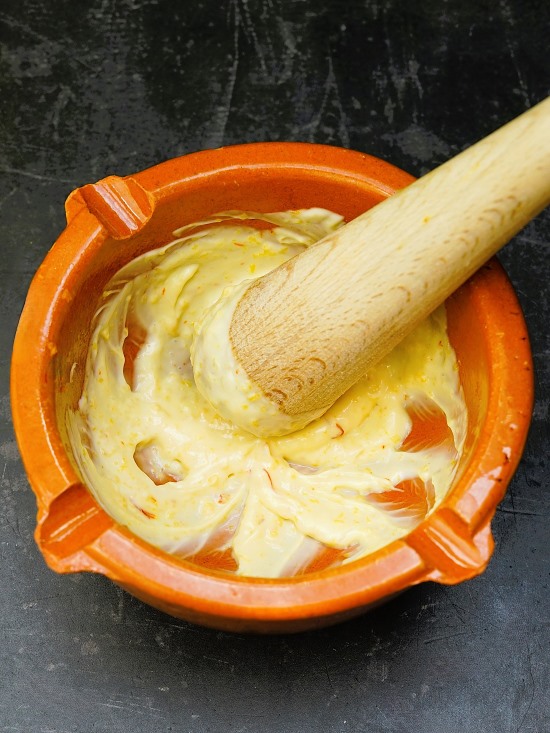
WHY CHEAT’S SAFFRON AIOLI/GARLIC MAYONNAISE?
With a little practice, it isn’t hugely difficult to make your own aioli from scratch. For those who want to, I’ve given basic instructions in a note to the recipe card at the end. However, I think there are several advantages to a cheat’s version.
- Consistent results. As mentioned above, while homemade mayonnaise can split, jarred mayo will not.
- Speed. Obviously, it’s quicker to reach for a jar of mayonnaise than gathering the ingredients, making sure they’re the right temperature, and slowly getting them to emulsify.
- Cost. Homemade aioli needs a decent amount of olive oil which, these days, isn’t cheap. Cheat’s aioli includes just a little extra virgin olive oil for flavour.
- Pasteurised eggs. Many people don’t want to or can’t eat raw egg. However, the eggs in bought mayonnaise have been safely pasteurised.
- Making small amounts. If you want a small amount of aioli, then you can take out as few spoonsful of jarred mayo as you like. However, you’ll need around 250 ml of oil to go with the minimum of one egg yolk for homemade mayonnaise. And that makes quite a lot.
SAFFRON: YES, OR NO?
Many years ago, when I first started cooking with saffron, I really wasn’t sure whether I liked it. I sometimes found my dishes overly bitter and with a slight medicinal tang. Then I discovered the reason was that I was using too much saffron. Get it right though, and it adds an intriguing flavour and aroma to foods as well as a beautiful colour.
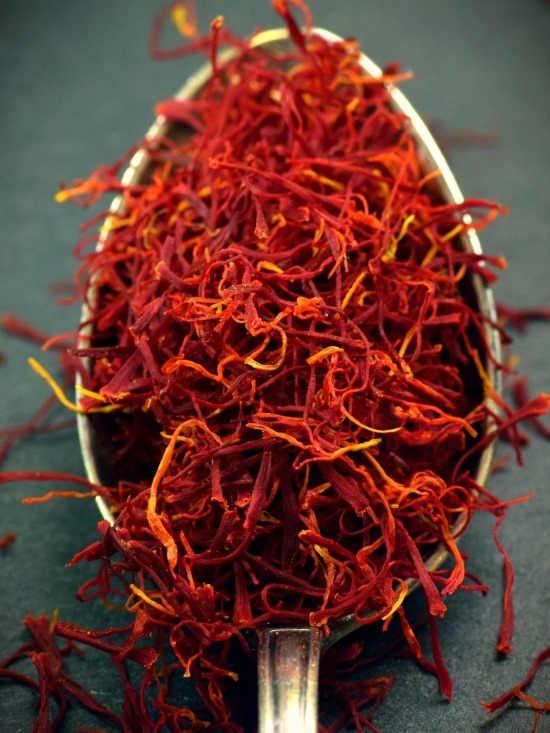
Also, overdo the saffron and you’ll be wasting money. By weight, it’s hugely expensive. That’s because the little orangey-red strands are the stigma of a variety of crocus that’s harvested by hand. There are just three stigma per flower, and it takes around 150 flowers to make one gram of saffron. But a little goes a long way in cooking, so you rarely need more than a pinch.
If you really don’t like saffron though, you can leave it out of this recipe and still have a great tasting cheat’s aioli.
CHEAT’S SAFFRON AIOLI
If I say it takes ten minutes to whip up a batch of Cheat’s Saffron Aioli, I’m being generous. Because after the first time you’ll probably do it in five. Ideally you’ll use a pestle and mortar, but the end of a rolling pin in a sturdy bowl will do.
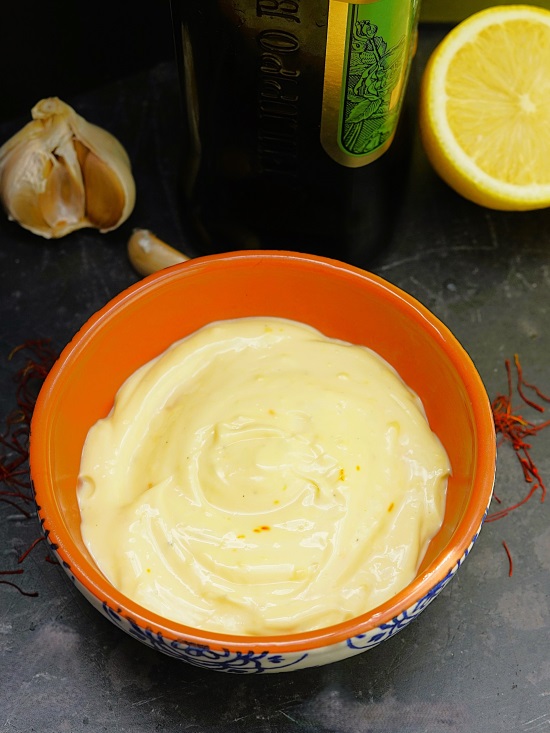
The recipe card at the end gives full instructions and suggested ingredient amounts. But just use it as a template and tweak to your own taste. I do recommend you read all this post first though for tips and step-by-step images.
The ingredients you’ll need are:
- garlic
- salt
- saffron threads
- ready-made mayonnaise
- extra virgin olive oil
- lemon juice
- black pepper
HOW TO MAKE CHEAT’S SAFFRON AIOLI
To serve 4 – 6 people, start by putting into the mortar 1 large garlic clove and a tiny pinch of salt. If you want a really strong garlic flavour, you could add two cloves. Use the pestle (or rolling pin) to bash them together until creamy then add a large pinch of saffron threads. Some people say 5 threads per serving. But I’m not about to start counting them and suggest you use your judgement.
Pound the saffron to break it down and work into the garlic; it will immediately become golden yellow. Now you can start adding the mayonnaise. As mentioned above, you don’t need to be exact about amounts. I add roughly 2 tablespoons first and work these into the garlic-saffron mix.
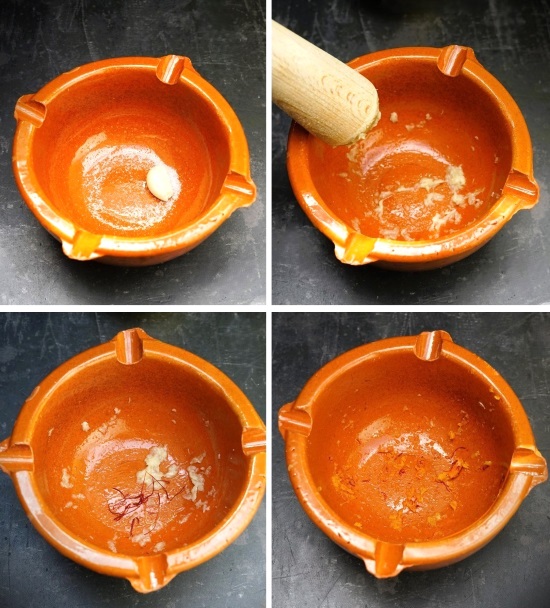
To incorporate the rest of the mayonnaise (about 6 tablespoons), I switch to a small silicone spatula. I find this tool much better for scraping down the sides of the bowl and getting everything well combined.
The only thing left to do now is stir in a teaspoon each of extra virgin olive oil and lemon juice, plus a little black pepper. Give it a taste and add more of any of these flavourings, plus extra salt, if you think it needs it. On the other hand, if it tastes too strong you can always stir in more mayo.
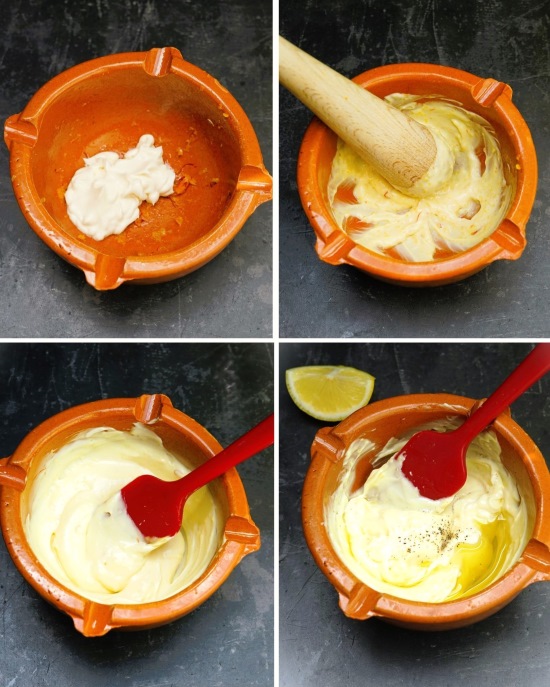
Your Cheat’s Saffron Aioli is now ready to use, although I like to chill it and let the flavours infuse a little. It doesn’t need long, so I usually make it first, cover, then set aside in the fridge while I prepare whatever we’re eating it with. You can certainly leave it longer if you want to, and the flavours will intensify. The next day, I often enjoy any leftovers even more.
SERVING CHEAT’S SAFFRON AIOLI
There really is no end to the foods that go well with aioli and saffron aioli. Vegetables, meat (gorgeous with Pinchos Morunos Spanish pork kebabs), fish, or grains. I love them with crispy potatoes whether roasted, fat chips or skinny fries. And it’s hard to beat wonderful, seasonal English asparagus spears, perhaps charred in a pan, with golden Cheat’s Saffron Aioli to dip them into.
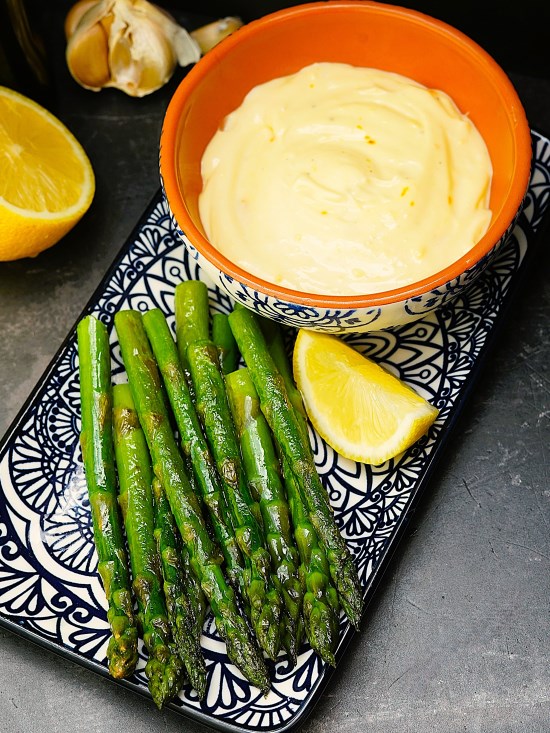
But, going back to that black rice dish in Barcelona all those years ago, my personal favourite has to be as an accompaniment to seafood. I love it with crispy, deep-fried squid strips or rings, and prawns. Below, I quickly fried king prawns in olive oil, then tossed in a bit of butter, chives, and chilli flakes. They made a quick but fabulous little treat with a bowl of Cheat’s Saffron Aioli to dip into.
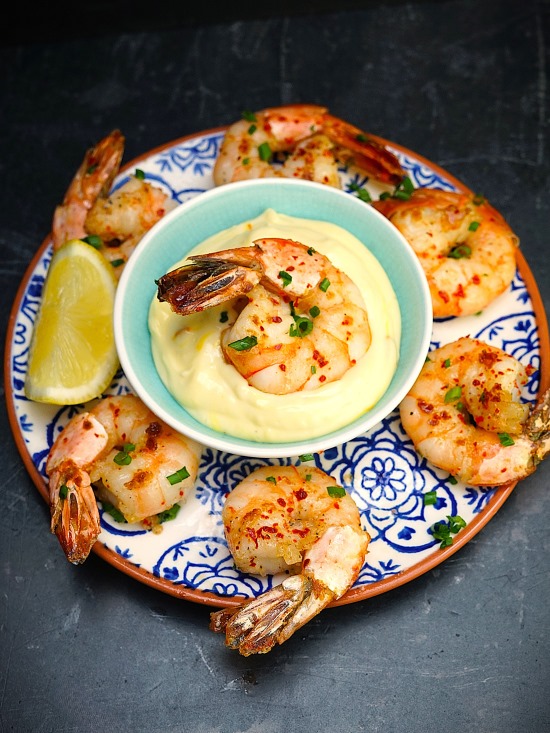
If you’ve made this recipe, please do let me know what you thought by leaving a comment and rating.
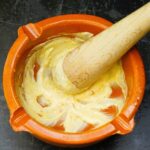
Cheat's Saffron Aioli (Garlic Mayonnaise)
Jarred mayonnaise flavoured with garlic and saffron is a superfast way to add flavour and richness to all kinds of vegetables, meat, seafood, potato, and rice dishes.
Don't like saffron? Leave it out to make a punchy garlic mayonnaise you can use in the same way.
Prefer to make your own mayonnaise from scratch? See the Recipe Notes below.
Ingredients
- 1 large clove garlic (skinned: add 2 cloves for a stronger taste)
- salt (to taste)
- 1 large pinch saffron threads (see Recipe Notes)
- 6 - 8 tbsp mayonnaise
- 1- 2 tsp extra virgin olive oil
- lemon juice (to taste)
- black pepper (to taste)
Instructions
-
Put the garlic in a mortar along with a small pinch of salt and pound with a pestle until smooth. Add the saffron threads and pound those into the garlic.
Tip: if you don't have a pestle and mortar, use the end of a rolling pin in a suitable bowl.
-
Add 2 tablespoons of mayonnaise to the mortar and stir to combine.
Stir in more mayonnaise to reach the right level of garlic and saffron flavour for you. Tip: switching to a small silicone spatula at this point makes it easier to combine the ingredients and scrape down the bowl.
-
Stir in 1 tsp each of the extra virgin olive oil and lemon juice, plus a large pinch of black pepper.
Taste and add more salt, lemon, or pepper if needed. If it tastes too strong, stir in more mayonnaise.
-
Can be used straight away, although it's better covered and chilled in the fridge where the flavours will develop.
Store in the fridge and eat within 3 days.
Recipe Notes
Saffron Aioli from scratch. For speed, this recipe uses bought mayonnaise. If you'd prefer to make your own from scratch then begin as per the cheat's version by pounding garlic, salt, and saffron until combined. Add the yolk of an egg and mix that in too. Now very slowly trickle in 250 ml of oil (2/3 sunflower oil and 1/3 olive oil is recommended), stirring all the time in the same direction. Taste, add pepper and lemon juice plus extra salt if necessary. If it splits, put a fresh egg yolk in another bowl and very slowly whisk in the split aioli.
How much saffron to use? People's liking for saffron will vary so use your judgement as to what a 'large' pinch is. If you're not used to it, then err on the side of less: too much saffron can give a bitter, medicinal taste.
RELATED RECIPES

